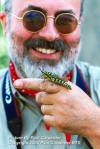Why are these not allowed for trade on here. I get the P h(thingy) is a new one, and I guess any for sale are prob wild caught and not captive bred, and an issue, as I've onyl recently even heard of it - is this the same with the P. fasciata? I don't know anything about pokey's you see, be nice to get some more insight into these species particularly!
Thanks guys
J x
Thanks guys
J x






Comment